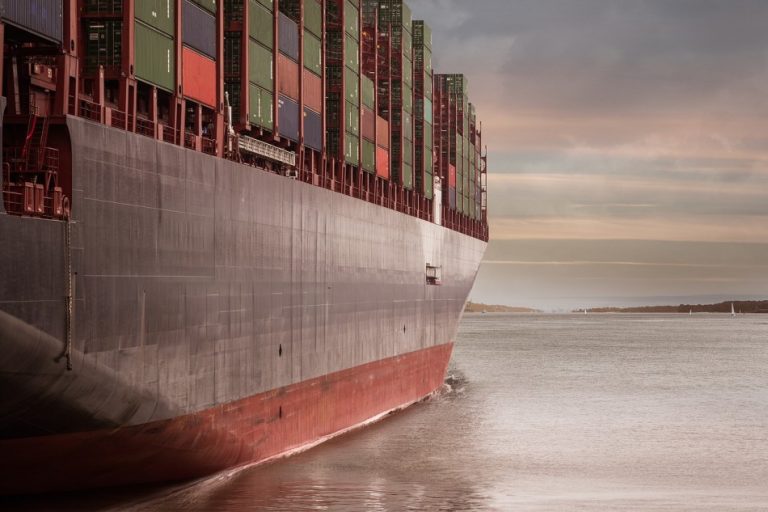As the trade war ceasefire agreed to last December continues, officials in Beijing and Washington struggle to reach a trade deal that will be acceptable to both the Trump administration and the Chinese leadership under President Xi Jinping. Trump late last month announced a delay of a March 1 deadline to impose additional tariffs on Chinese goods, allowing more time for negotiations.
According to China analysts, while American pressure and China’s inability to withstand the trade war mean that a genuine deal may be in the cards, the details of its implementation will be fraught with difficulty as Xi grapples with social unrest and insubordination from within the Chinese Communist Party (CCP).
Chinese leaders are under enormous pressure to find a way out of the trade war that has taken a hefty toll on China’s export-oriented economy. The U.S. has imposed tariffs at a rate of 10 percent on over US$200 billion of Chinese goods, or more than half of the entire U.S.-China trade imbalance.
Reports published by the political risk consultancy group SinoInsider since Trump and Xi met during the G-20 summit in Argentina in December have noted the increasing frequency of activity within the CCP, which is often reflected in the state media. SinoInsider said that recent headlines run in the Party-controlled Xinhua news site “suggest that Beijing is preparing to make substantial concessions to Washington as the trade negotiation draws to a close.”

Chinese President Xi Jinping is under increasing pressure to find a way out of the trade war. (Image: wikimedia / CC0 1.0)
Economic reality, political struggle
Though Xi has a reputation as a strongman politician, his position is fundamentally insecure due to the factional nature of the CCP, economic trouble, and the resentment that his six years in power have engendered among both the Party elite and the general public.
Success
You are now signed up for our newsletter
Success
Check your email to complete sign up
Trump began targeting mainland China with tariffs and other administrative measures at the beginning of 2018, citing the CCP’s failure to adequately address American concerns about the Sino-U.S. economic relationship. These include widespread industrial espionage by Chinese companies and intelligence agencies, as well as strong interventionist policies that the Communist Party uses to boost its own growth at the expense of a more open business environment.
The trade war has exacerbated the Chinese economic slowdown that has been years in the making. Recent months, in particular, have seen the mass migration of working-class Chinese return to their rural hometowns as unemployment spikes and businesses go bankrupt. According to a September analysis by U.S.-based Chinese economist He Qinglian, the true unemployment rate among working-age Chinese could be higher than 20 percent. Meanwhile, China faces food shortages if it cannot increase its economic competitiveness.
“Given the Trump administration’s stance on China, we believe that it is highly unlikely that Trump will sign a ‘superficial’ deal,” says SinoInsider. “And given that the CCP will do anything to survive, there is a very good chance that Xi will offer huge concessions at the last minute to avert raised tariffs, rescue the Chinese economy, and prop up the regime’s political legitimacy.”

The trade war has exacerbated the Chinese economic slowdown that has been years in the making. (Image: via pixabay / CC0 1.0)
However, negotiations between U.S. and Chinese officials have been frequent, but apparently inconclusive so far. At the end of January, Chinese Vice Premier Liu He concluded negotiations with U.S. officials and President Donald Trump at the White House, with little result except that both Xi and the American president were eager to hold one or more summits where more progress could be made. In mid-February, U.S. Treasury Secretary Steven Mnuchin met with Xi in Beijing for further talks.
According to SinoInsider, factional struggle in the CCP has prompted Xi to exercise special caution when dealing with the United States, as he must be able to package any deal with the United States in a way that does not leave him vulnerable to attack or even being deposed by his rivals.
In the late 1990s, the political faction of former Party chief Jiang Zemin piggybacked on China’s economic rise to create powerful cliques in the CCP regime and throughout the industrial and commercial sectors. Since coming to power, Xi’s efforts to stamp out these allegiances and impose his own order have driven formidable resistance from among the Party bureaucracy, as the latter saw their interests come under attack.
SinoInsider notes that since Xi met with Trump during the G-20 summit and negotiated the ceasefire, the CCP has held an unusual number of ideological study sessions. The consultancy says this trend reflects Xi’s concerns about insubordination among the CCP ranks as Beijing negotiates with the Trump administration from a position of weakness. “China will likely wait until the midnight hour before agreeing to a trade deal that meets U.S. demands because Xi and the CCP need to show the Chinese people that the regime had at least bothered to ‘stand its ground’ before ‘caving’ to external pressure,” SinoInsider explained in its analysis.
Follow us on Twitter or subscribe to our weekly email














